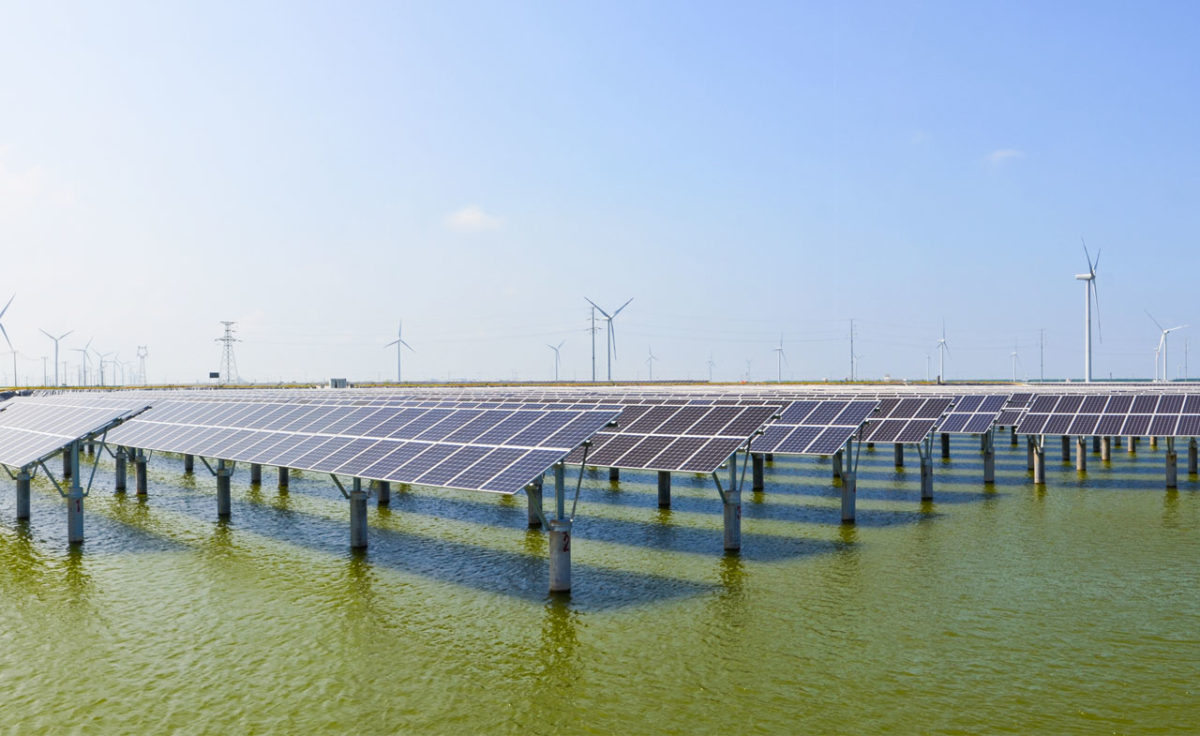The study, ‘Global Energy System Based on 100% Renewable Energy – Power Sector’ was presented during the Global Renewable Energy Solutions Showcase event, a sideline to the United Nations Climate Change Conference COP23 currently underway in Bonn.
The study’s key overall finding is that a global shift to 100% renewable electricity is feasible with current technology, and would be more cost effective than the current system led by fossil fuels and nuclear generation.
The study found that in a projected scenario for energy demand in 2050, 100% could be met by current renewable technologies, at a global average LCOE of €52/MWh, compared with 2015’s average LCOE of €70.
In EWG’s 2050 scenario, solar PV covers 69% of electricity demand, wind 18%, hydro 8% and bioenergy 2%. The study predicts that wind will briefly overtake solar in the 2020s, before further price drops put solar back in the lead.
Storage is outlined as the key supporting technology for solar, with around 31% of total demand covered by storage technologies. 95% of this is projected to come from short term storage provided by batteries, with power to gas conversion providing seasonal storage.
“There is no reason to invest one more dollar in fossil or nuclear power production,” exclaims EWG President Hans Josef. “All plans for a further expansion of coal, nuclear, gas and oil have to be ceased. More investments need to be channeled in renewable energies and the necessary infrastructure for storage and grids. Everything else will lead to unnecessary costs and increasing global warming.”
The report is based on an original model developed by Lappeenranta University of Technology, which calculates the most cost-effective mix of technologies based on available resources in 145 regions for a full reference year. The full study is published here.
Only time will tell whether this study’s recommendation will translate into reality. As lead author Christian Breyer sums up: “Energy transition is no longer a question of technical feasibility or economic viability, but of political will.”
This content is protected by copyright and may not be reused. If you want to cooperate with us and would like to reuse some of our content, please contact: editors@pv-magazine.com.




Hans-Josef Fell, presumably.
The Finnish group get to 100% without recourse to burst hydro, which was the focus of the bitter clad between Clack and Jacobson over the latter’s 100% renewable energy scenarios.
I’ve used solar PV since 1990. It’s great in the summer, not so much this time of year (44 degrees North).
By 2050 the fossil fuel will mostly be history (and air pollution). How to live well with much less is the dilemma we face, not whether to keep using more and more.
Living on our solar budget will power a much smaller, relocalized, steady state society.
http://www.resilience.org/stories/2017-09-19/100-percent-wishful-thinking-green-energy-cornucopia/
100 Percent Wishful Thinking: The Green-Energy Cornucopia
By Stan Cox, originally published by Resilience.org
September 19, 2017